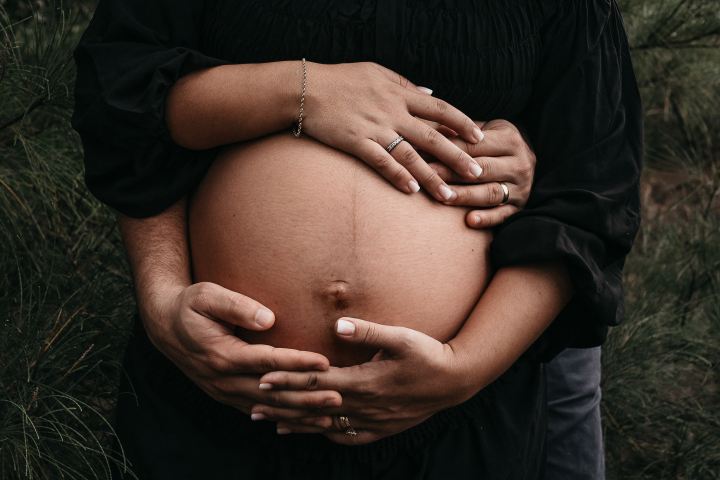LIVE SMARTER
Pros and cons of a pregnant pause — what you need to know about postponing childbearing

An increasing number of women worldwide choose to postpone childbearing, but the success of egg freezing and IVF is not guaranteed.
‘Freezing one’s eggs will free one’s career, says Dr Jack Biko, president of the South African Society for Reproductive Medicine and Gynecological Endoscopy. “It allows women to have children when they are older and ready”. Since the first in vitro fertilisation or test tube baby was born in 1978, the procedure of egg freezing and IVF has become much safer and more successful.
An increasing number of women worldwide choose to postpone childbearing, sometimes until their careers or relationships are more established. The average age of first-time mothers is now over 30. Research shows that South Africa is following the same trend. According to a 2019 report by Statistics SA, the average age for first-time mothers is now higher than at any point in the previous 20 years. Even though egg freezing and IVF have given millions of couples hope of having children later, success is not guaranteed.
What is IVF?
In vitro fertilisation involves several steps: these include hormones to stimulate ovulation, egg harvesting, fertilisation with sperm from a male partner, and transfer of the fertilised egg or embryo into the mother’s uterus. If the woman prefers to postpone childbearing she can also choose to freeze some of the harvested eggs until she is ready to use them.
Personal accounts
Cathie McGown’s husband Steve was dramatically abducted by al-Qaeda in Mali in 2011. At the time, she was a healthy 34-year-old. Steve’s abduction put their plans to start a family on hold; for months Cathie didn’t know if Steve was dead or alive. Her life fluctuated between hope and despair.
Once she turned 37 she decided to freeze her eggs. She had read many success stories of women who had undergone the procedure. Being proactive about her fertility made her feel empowered. It would at least improve her chances of having children if and when Steve returned. The egg harvesting and freezing process was tougher than she anticipated; she felt lonely, vulnerable and stressed to the limit. Feelings that were exacerbated by the many hormone injections; her world fell apart when she was told that the count and quality of the eggs were disappointing. After an absence of six years, Steve returned unexpectedly and Cathie was beside herself with joy. At long last, it seemed as if life was slowly getting back to normal. They were ready to start a family. She felt excited and happy. They tried three cycles of IVF but they were all unsuccessful. Each time it failed she was devastated and eventually gave up. It was just too costly and too traumatic. Now Cathie has made peace with the fact that they won’t have children of their own and her advice to other women is to share their stories. It is important that the message gets out that for every success story, there are also many unsuccessful ones.
For Caroline, (not her real name), IVF was successful in the end but it required a great deal of perseverance. At 34 her life felt complete: she was about to qualify as a medical specialist and had just met the man of her dreams. Starting a family was not a priority. Inspired by friends, she decided to freeze her eggs. This would at least give her the option of having children when she was older.
It came as a huge shock when the fertility clinic told a healthy Caroline that her egg count was low. She never anticipated a problem and she was relieved that they managed to harvest 18 eggs.
Three years later, 37-year-old Caroline was ready to have children. Initially, she tried getting pregnant with embryos of her frozen 34-year-old eggs but miscarried early into her pregnancy. They tried three more rounds, but every time their hopes were dashed. The emotional and financial stress became unbearable. Caroline felt guilty, and feeling like she was putting them under tremendous financial pressure. She decided to take a break and regroup. Sessions with a therapist helped her deal with her loss and a year later she was ready to try again. This time she used the last embryo of the 34-year-old eggs, and it was successful. Caroline is now seven months’ pregnant. She is immensely grateful that her journey had a happy ending.
Biko explains that, unlike men who produce sperm until late in life, women are born with a fixed egg count. The best time to fall pregnant is in their twenties to early thirties when they have good-quality eggs. From the age of 32 this starts to decline. After 35, the egg quality and quantity decline rapidly. There is only about a 7% chance of falling pregnant after 40.
Egg freezing is not fail-safe. The process of harvesting more eggs and maximising the chances of fertilisation increases the chances of having your own biological children. Biko advises women who plan to have children to freeze as many eggs as possible before turning 35. The earlier you do it, the better. Contrary to popular belief, there is no medication available that can increase the egg count and quality. Attrition during the process of harvesting, freezing, thawing and fertilising can occur every step of the way.
On average it takes at least eight to 15 quality eggs to ensure one successful pregnancy. Most couples undergo more than one cycle before they are successful. Currently, the success rate of egg freezing resulting in a live birth ranges from 38% to 51%. Some clinics offer desperate patients costly add-ons or advise them to follow a particular diet to improve their chances of a successful pregnancy. Biko warns that there is no scientific evidence that proves it makes any substantial difference. The important thing is to live in moderation, follow a healthy diet and exercise regularly.
What other options are available?
Biko says if freezing your own eggs and IVF are unsuccessful, there are other options, including using donor eggs. Some couples are initially hesitant to consider it because they want to pass on their own genes. This, Biko explains, shouldn’t become a deterrent. Humans are genetically 99.9% similar. Evidence confirms that the character traits of a person are determined by both the genes and environment, including the lifestyle of the mother. This happens through a process called epigenetics. It explains how the mother’s lifestyle and environment influence which genes of the embryo are switched on and which are switched off.
Another technique is the “three-parent-child” process, or mitochondrial donation. Mitochondria provide the power a cell needs to divide and grow. This technique could help women whose egg cells do not have the necessary power to develop. It involves three genetic parents. First, the biological mother who contributes her DNA. Second, the father who supplies his sperm. Third, the donor mother who provides powerful cells. The DNA of the donor mother’s cells have been removed; once an egg consisting of a donor mother’s cell, the biological mother’s DNA and the father’s sperm is fertilised, it will be inserted into the biological mother’s uterus. The resulting child will have the DNA from both biological parents.
Biko says these techniques are costly and many couples can’t afford them – however, some medical aids will cover a portion of the costs. Publicly funded IVF is about R30,000 depending on your income. IVF in a private clinic costs between R80,000 and R120,000. To keep eggs frozen costs about R15,000 per year in a private clinic and much less if you are in a government hospital. DM




















 Become an Insider
Become an Insider
Comments - Please login in order to comment.